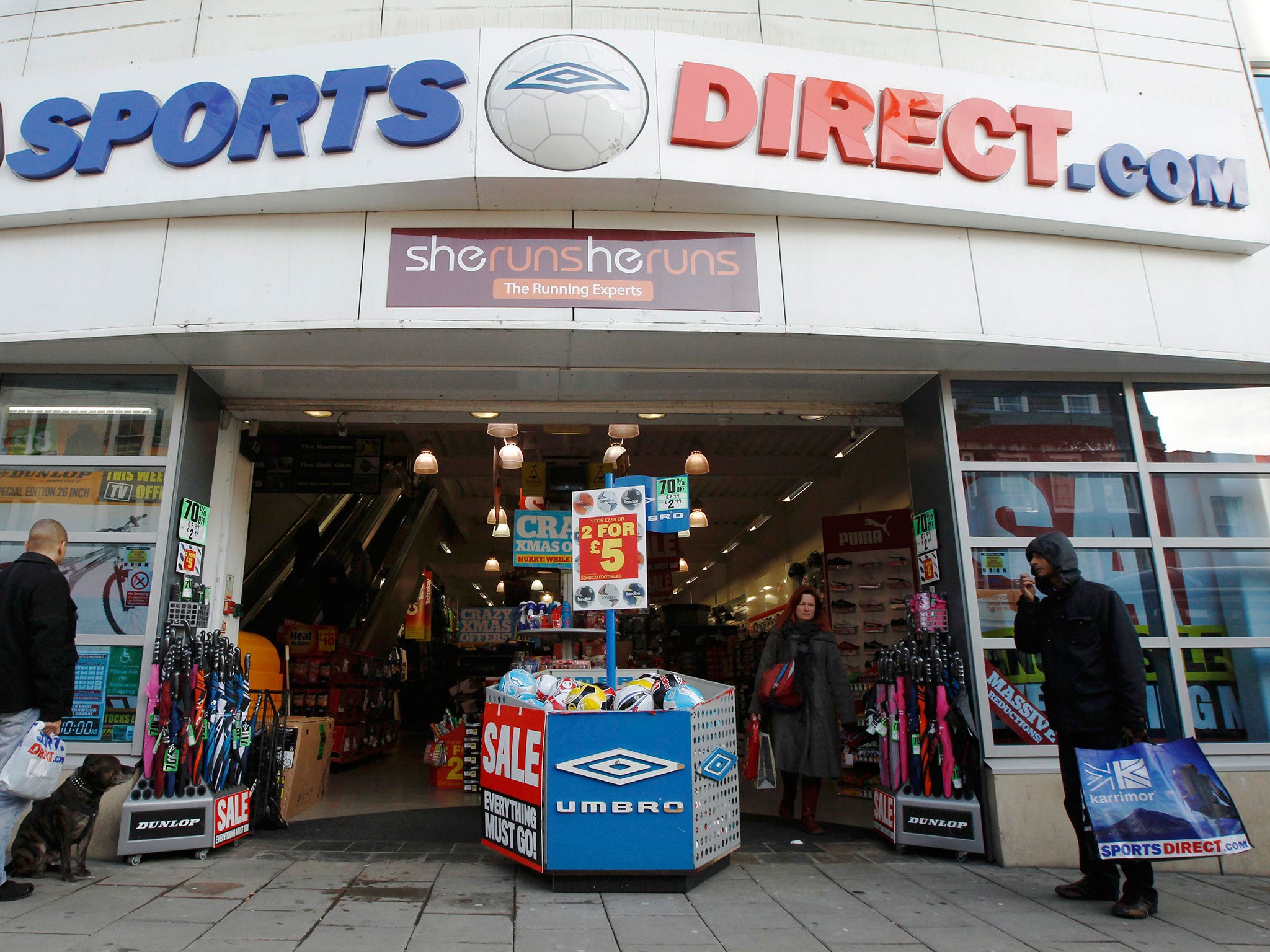Sports Direct has already scored its first own goal of the year
Outlook: Michael Murray has been appointed to a number of roles within the Ashley empire, the most high profile of which involves captaining Sports Direct’s property team

If the England football team could create chances as easily as Mike Ashley’s Sports Direct creates scandals, there’d be a lot more than just the one World Cup in the FA’s trophy cabinet.
The company’s first own goal of 2016 concerns its latest signing – a fleet-footed 26-year-old lined up as the star property striker: Michael Murray has been appointed to a number of roles within the Ashley empire, the most high profile of which involves captaining Sports Direct’s property team.
This is a Premiership position best suited to a Premiership business player, given the rate at which the company is expanding domestically and overseas. But Mr Murray looks more like a business WAG (he’s going out with Mr Ashley’s daughter). Perhaps, as he’s male, that should be HAB (think about it). Hiring Mr Murray to do the job is rather like a Manchester United women’s team asking Coleen Rooney to do the same job her husband Wayne does for the men’s side.
It’s not that I’m saying Mr Murray has no talent for business. But then I’m not saying Ms Rooney has no talent for football either. She’s probably pretty good. No one would say, however, that she is in the same class as Wayne.
The same goes for Mr Murray, who appears to have been a dab hand at organising student events, but didn’t appear likely to crash one of those “top 30 under 30” lists prior to his entering the big league courtesy of his, would it be too soon to say “future father-in-law”?
In a statement “clarifying” the appointment, Sports Direct has explained that Mr Murray is not a director of any company within the Sports Direct Group and is working on a “consultancy arrangement”. This means he’ll only be paid based on how much value an “independent review” overseen by the company’s non-executive directors decides he has created. If the new star striker doesn’t score he doesn’t get paid. So that’s all right then.
Is it worth pointing out here that these are the same non-executive directors who once tried to push through a package for Mr Ashley that would have paid him £70m in free shares?
The City’s institutions baulked at that. But they have sat on their hands over just about every other governance issue confronting this company. It’s doubtful that this frankly bizarre episode will change that.
Last year, institutional investors had the chance to shake things up. Minority investors can boot out non-executive directors where a big investor – such as Mr Ashley – has a majority stake. Using that power would have sent a strong message on behalf of the likes of you and me, who may be exposed by the company through the pensions and Isa savings that some of these institutions manage.
But the majority instead chose to sit on their hands by backing a board that presides over appointments like that of Mr Murray. That, and not so much the appointment itself, is the real scandal here.
It’s Fat Cat Tuesday – when executives cheer
That £70m Sports Direct tried to gift Mr Ashley might have been an outlier in terms of its sheer size, but it was by no means alone. In fact, according to the High Pay Centre, today is “Fat Cat Tuesday”, the day on which the typical FTSE 100 chief executive’s pay will have passed the average full-time UK worker’s salary.
Now, despite the eccentric way he runs his company, Mr Ashley can build up a business. But typical FTSE executives are quite different. They aren’t entrepreneurs; they are professional managers who owe their positions to climbing the greasy pole. They are paid far more than most entrepreneurs, who take risks to build businesses and create jobs. I’m not saying that they aren’t clever, talented people. But FTSE 100 companies tend to be conservative, risk-averse institutions, whose performance is usually primarily influenced by the economy rather than the decision of just one person. And yet every year we see ever more outlandish packages being handed out – not just to the good, but to the mediocre and the downright bad as well.
The High Pay Centre criticises the Government, which has sought to address the issue by giving the City’s institutional investors more power. It’s hardly a surprise that these efforts have failed, as they wouldn’t use the powers they already had, let alone new ones.
Even economists agree on the lunacy of Brexit
One area is which the British people and its business leaders are broadly aligned is on the subject of the EU. According to the latest survey by Deloitte, the latter are increasingly favouring the harakiri option of walking out, reflecting polls showing the public moving in the same direction. A majority of finance chiefs questioned are still in favour of staying in, subject to a successful renegotiation by David Cameron, but their numbers are falling.
This is scarcely credible given the risks a Brexit poses to the UK economy. Economists rarely agree on anything much but a Financial Times survey has shown remarkable consensus among them on this.
Leaving would be an act of lunacy but the finance chiefs appear to be buying into the myth that a Britain out of Europe would somehow suddenly become the land of milk and honey. It’s deeply disturbing that people who ought to know better are buying into this dangerous fantasy.
Subscribe to Independent Premium to bookmark this article
Want to bookmark your favourite articles and stories to read or reference later? Start your Independent Premium subscription today.

Join our commenting forum
Join thought-provoking conversations, follow other Independent readers and see their replies